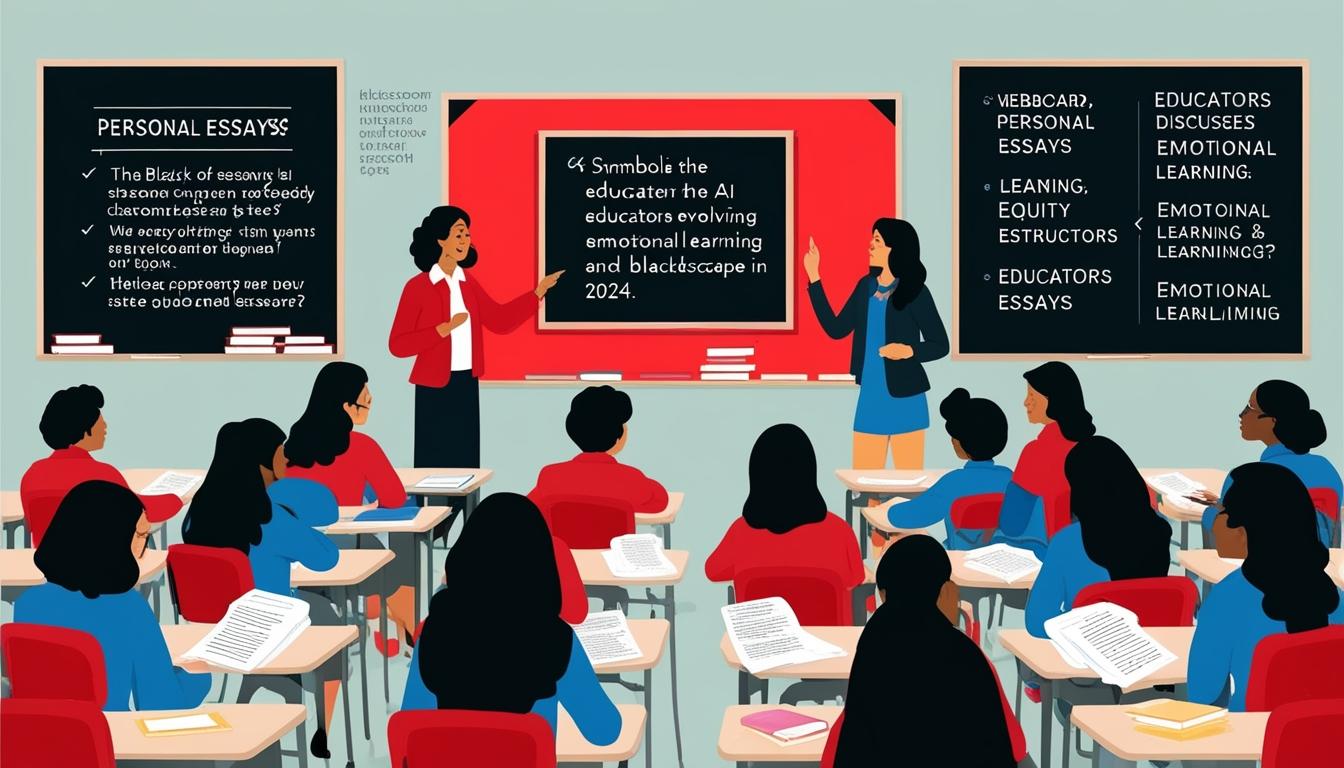In 2024, the K-12 educational landscape has experienced significant shifts, driven largely by personal narratives and emerging technologies, particularly in the realm of artificial intelligence (AI). The year has seen an increase in personal essays from educators, reflecting on their experiences and challenges, which have resonated prominently with audiences according to EdSurge. The articles highlighted key themes such as the importance of emotional learning, equity in education, and the transformative role of technology in classrooms.
One of the standout contributions came from researcher Nicola Hodkowski, who argued for a fundamental change in the way mathematics is taught. In her piece, she advocated for moving beyond rote memorisation of mathematical processes and suggested fostering a deeper understanding of concepts. Hodkowski elaborated on strategies that educators could employ to ensure students not only grasp the material but also feel more confident in applying mathematical principles in real-world scenarios. This approach, she argued, could lead to greater success in more advanced mathematics.
In another significant essay, school administrator Sarah Wright, alongside her colleague Mi Aniefuna, addressed the shared traumatic experiences faced by Black women educators. Their reflections, which arose from an EdSurge research project, emphasised a trauma-informed leadership approach that recognises the ongoing stressors and work-life challenges prevalent among educators belonging to this group.
The generational shift towards Generation Alpha has also been a focal point of discussion. Teacher coach Jessica Kato highlighted the unique characteristics of this cohort, underscoring their complete immersion in the digital world from birth. Kato’s insights aimed to assist educators in engaging effectively with these students, suggesting methods to leverage their innate strengths while navigating the post-pandemic educational challenges.
California's controversial decision to revise its mathematics framework, which mandates that students wait until ninth grade to begin algebra, sparked considerable debate. Daniel Mollenkamp noted that this policy aims to standardise access to algebra, which is often considered a gateway to advanced mathematics, thereby promoting equity among students.
On the policy front, the expansion of the Americans With Disabilities Act by the U.S. Department of Justice has placed additional responsibilities on educational institutions. This revision pertains to ensuring accessibility of digital content for students with disabilities, which requires schools to prioritise the purchase of inclusive materials within a two-year timeframe.
The evolving requirements for high school graduation were scrutinised by educator Katie Wills Evans, who argued that the existing standards have failed to adapt to the modern landscape. She posed concerns over how traditional assessments, such as multiple-choice tests, often do not correlate with students' future success or preparedness for adulthood.
In the realm of social-emotional learning (SEL), social worker Clementia Jose offered insights into how professional development initiatives often disregard the lived realities of Black and Latino students who have faced adversity. She advocated for enhancing support mechanisms that prioritise understanding and listening over prescriptive solutions.
The advent of AI technologies, particularly the release of a free version of ChatGPT by OpenAI, has formed a contentious front in educational discourse. Jeffrey R. Young's analysis described the widespread impact of these tools, which have generated a need for educators to strategically incorporate AI into their teaching practices.
Lastly, teacher Michael Paul Ida shared his experiences of racial identity and its implications in professional settings, articulating the pressures he faces as one of the few Asian American educators at development seminars. He underscored the need for non-Asian colleagues to actively engage and listen to the perspectives of their Asian American peers.
The accounts provided throughout 2024 illuminate the complexities of contemporary education, drawing attention to the critical intersections of technology, personal experiences, and institutional practices, and presenting a rich tapestry of how educators navigate these challenges.
Source: Noah Wire Services
